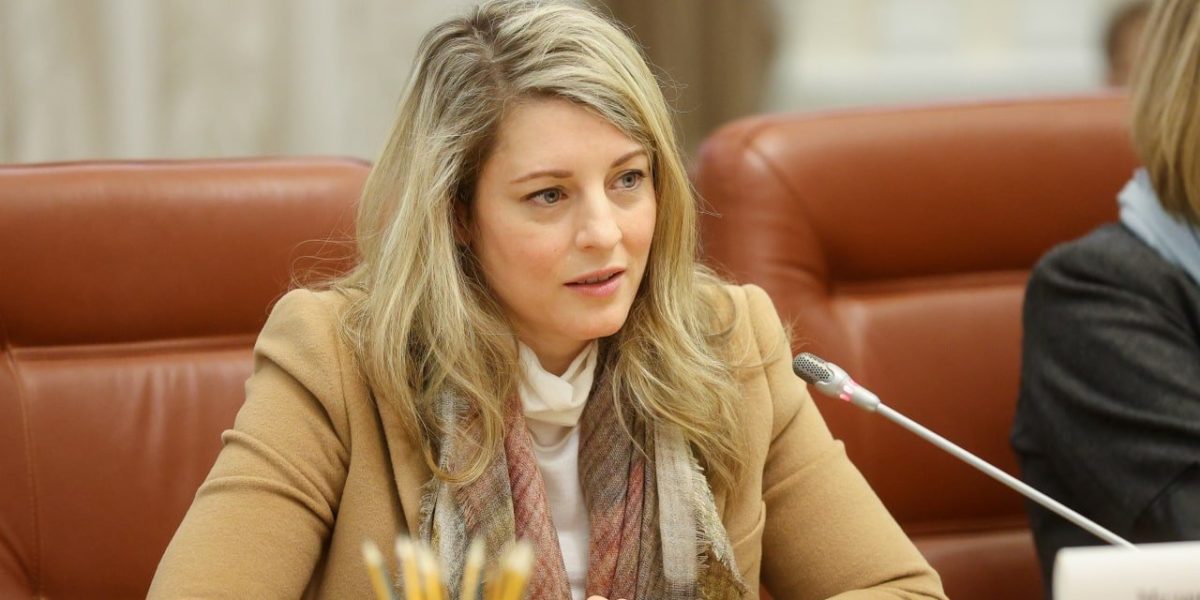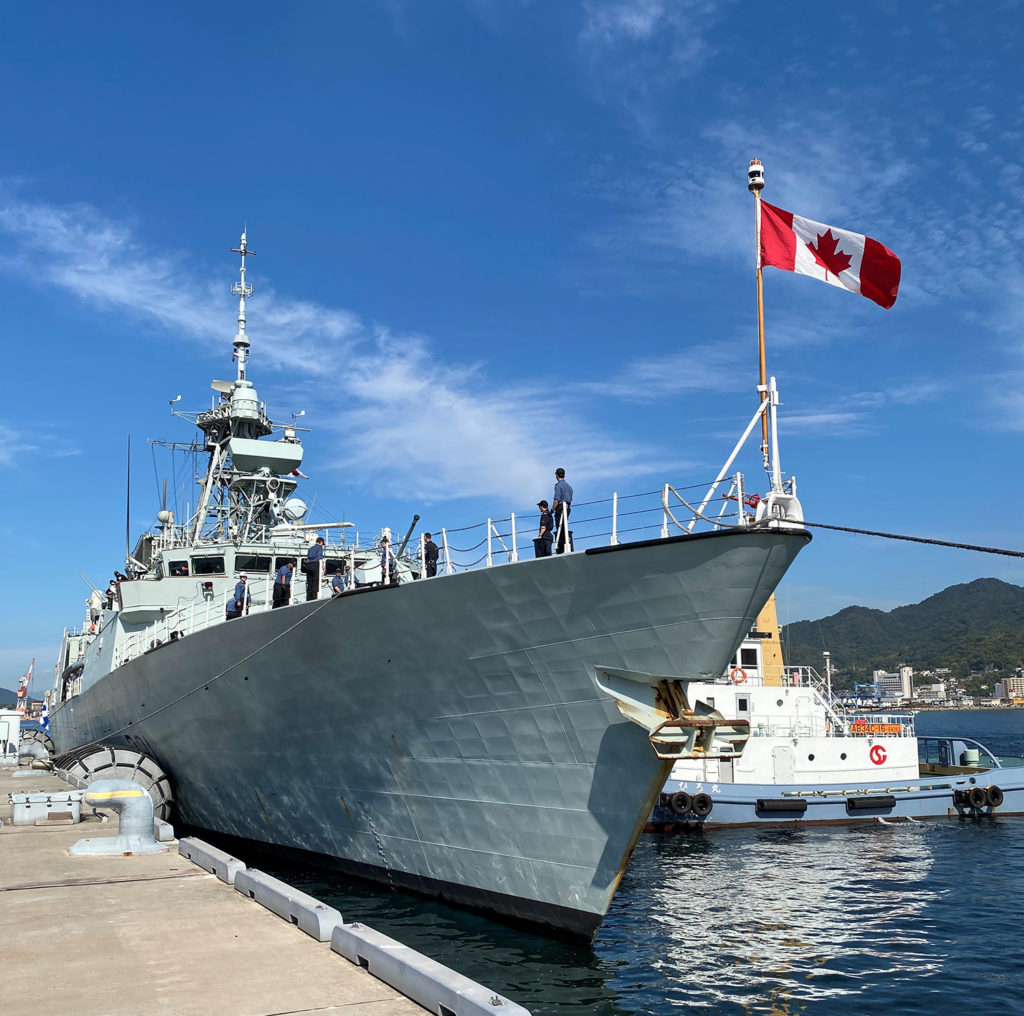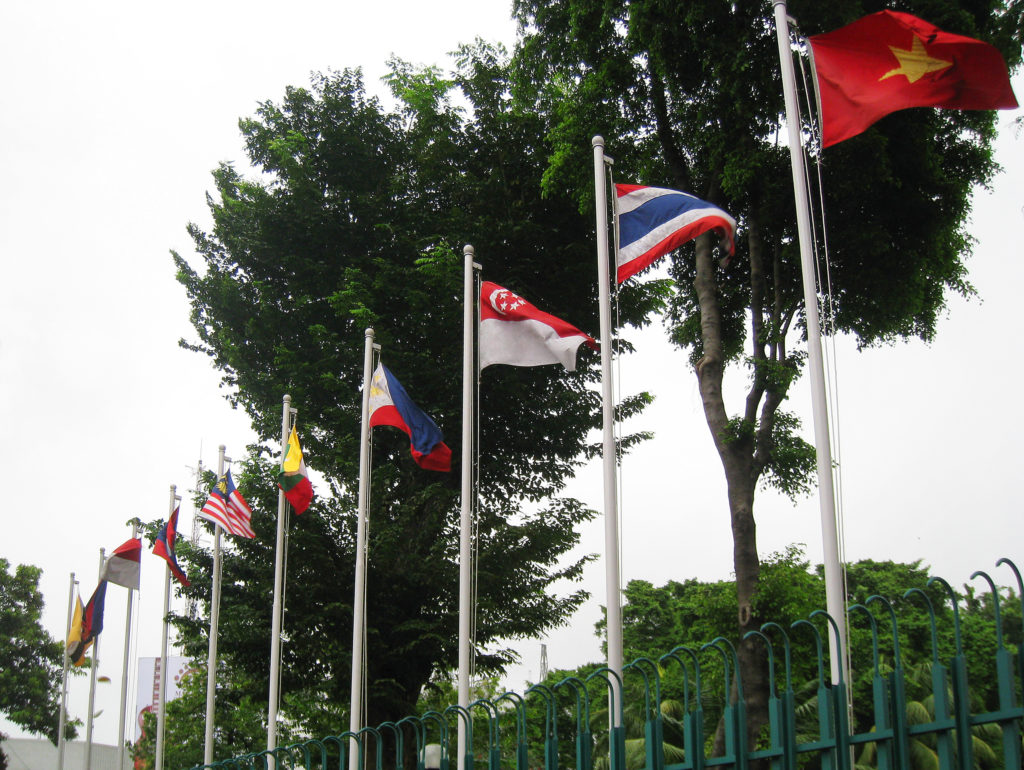“麵對中國別強勢增加軍力,除非你想打仗”
加拿大在線新聞雜誌rabble.ca在12月2日發表了兩名西方學者撰寫的文章,對加拿大政府盲目追隨美國公布所謂“印太戰略”提出質疑。文章批評加拿大已淪為美國的“哨兵國家”,忽視了發展對華關係的合理呼聲。其印太戰略隻是美國全球主導計劃的一環,並不符合加拿大的利益,對中國也充滿了“明顯的偏見”。此外文章還警告,美國和加拿大“妖魔化”中國的政策,還將進一步加劇亞裔群體麵臨的種族主義的風險。
普萊斯和喬姆斯基在加拿大媒體發表的評論文章
這兩名學者分別是加拿大維多利亞大學曆史學名譽教授約翰·普萊斯(john Price)麻省理工學院名譽教授諾姆·喬姆斯基 (Noam Chomsky)。他們在文章標題中直言不諱:“加拿大的印太戰略——從聯合國和平維護者淪為美國的哨兵國度”。
今年11月27日,加拿大外交部長梅勒妮·喬利(Melanie Joly)公布新版“印太戰略”(CIPS)。成為歐盟、法、德、澳之後又一個頒布印太戰略的美國盟友國家,這份文件在涉華部分相當消極,並直接將中國描述成“越來越具有破壞性的全球力量”。中國駐加使館第一時間予以嚴厲正回應,稱其涉華部分大肆對中國攻擊抹黑,渲染所謂“中國威脅”,並表示如果加方自不量力,肆意妄為,必將遭到可恥失敗,也必將遭到中方有力回擊。
“在這份長達兩頁的評估報告中,CIPS列舉了一長串中國被指控的不當行為,似乎就沒有什麽其它想說的了。”普萊斯和喬姆斯基在文章中寫道,加拿大的印太戰略報告對“中國令人印象深刻的經濟成就”隻字不提——中國是加拿大第二大貿易夥伴;中國讓8億人擺脫貧困,聯合國也承認了這一點,以及中國在太陽能發電領域的取得的成果。
“坦率地講,正是因為這種明顯的偏見,任何老師都會被迫給加拿大政府對中國的評估不及格。”

加拿大外長喬利(資料圖)
文章稱,加拿大政府的新口頭禪是“必要時我們將挑戰中國,另一些時候我們將合作”,“實際上CIPS隻是一種尷尬,一種尖銳的爭論,而不是外交策略。如果該協定得以實施,加拿大和中國在環境問題上進行實質性合作的可能性將被終結,而在全球氣候緊急情況下,環境合作是必不可少的。它還增加了戰爭和使用核武器的可能性,這是這個時代另一個生存危機。”
兩名學者注意到,此前在渥太華舉行的亞太事務會議上,幾乎所有受邀演講者——無論其政治立場如何,都明確表示,基於遏製或孤立中國的政策是錯誤的,而且會適得其反,然而,加拿大政府對此卻選擇忽略。
“北約代表於6月聚集在馬德裏,他們在那裏通過了新的戰略概念。。。。。。換句話說,現在整個世界都是他們的管轄範圍。”文章寫道,“帝國不會停息,但這樣做的賭注太高了。CIPS遠不是為加拿大而生的,它就像美國主導的全球計劃的車輪上的一個輻條。”
文章警告,中國的確已經成為一個大國,並且地區影響日益擴大,但“公開指責中國搞破壞,加強為軍事對抗所做的準備,這難道是應對中國之策嗎?除非你想挑起戰爭。”
文章還提到了加外長喬利在一場演講中所謂“維持二戰以來和平和穩定”的說法。兩名學者諷刺道:
“實際上,喬利這麽說等同於讓我們忘記:朝鮮戰爭導致300萬人死亡、越南戰爭也導致了300萬人喪生,美國於1965年在印尼策劃的爭辯,最後也導致100萬人死亡;被美軍驅逐的衝繩人,至今仍在努力驅趕島上龐大的美軍基地;還有成千上萬的太平洋島民目睹了他們的島嶼被美國占領並用於核試驗。。。。。。加拿大和美國都對全球變暖負有曆史責任。”
文章直言,就在加拿大政府渲染“中國威脅”的時候,亞太地區人民卻在積極地同中國打交道,同中國舉行了一係列會議。然而,加政府並沒有支持這些區域倡議,而是試圖向亞洲強加美英的議程——以歐洲為中心的英美聯盟擔心,亞洲真的就變成了亞洲人的。
普萊斯和喬姆斯基在文章最後再度警告,美國借助妖魔化中國,為自己在亞太地區的行動找借口。然而,加拿大的印太戰略和美國全球政策對中國“妖魔化”程度加深,隻會進一步加劇對北美亞裔的種族主義攻擊。
Canada's Indo-Pacific Strategy': From UN Peacekeeper to U.S. Sentinel State
In this long read, author John Price works with Noam Chomsky to respond to Canada’s Indo-Pacific Strategy.

Vanada's Global Affairs minister Melanie Joly. Credit: Cabinet of Ministers of Ukraine / Wikimedia Commons
In a recent article in the Ottawa Hill-Times, journalist David Crane asked an important question: “Is Canada trying to match or outdo American hostility to China?”
Canada’s Indo-Pacific Strategy (CIPS), announced in Vancouver recently by Liberal foreign affairs minister Mélanie Joly and other ministers, answers that question unequivocally:
“China is an increasingly disruptive global power” begins the CIPS assessment of China.
True enough if taken in isolation. Insidious, however, in the way it is used in this report.
“We are not just going to engage the Indo-Pacific, we are going to lead,” stated Joly in her opening remarks. In this case, leadership seems to imply being tougher on China than anyone else. In its two-page assessment, the CIPS lists a litany of China’s alleged misdeeds and that, it would seem, is all there is to say. Not a word about its impressive economic achievements; nor that China is Canada’s second largest trading partner; nor about lifting 800 million people out of poverty, as recognized by the UN; not a peep about its development of solar power generation, documented in a Lancet study. Frankly, any teacher would be compelled to give a failing grade to the Canadian government’s assessment of China because of the obvious bias.
“We will challenge China whenever necessary, and cooperate if we must,” is the government’s new mantra. Frankly, the CIPS is an embarrassment, a strident polemic, not diplomacy. If implemented it will definitively end any possibility of substantive Canada-China cooperation on the environment, an imperative in the face of the global climate emergency. It also increases the possibility of war and the use of nuclear weapons, the other existential crisis of this era.
In terms of concrete actions, the CIPS charts two main priorities – increase funding to Canada’s military/spy agencies, and provide a large infusion of cash to finance infrastructure projects in the region.
A closer examination of the fine print shows the five-year military/spy funds (what the government euphemistically terms “Promoting Peace, Resilience and Security,” includes:

- nearly $500 million to increase the Canadian military’s presence in the region;
- and more than $227 million for Canada’s to bolster national security agencies (including CSIS, CSE, RCMP, and CBSA).
Compared to some of the military powers in the region, this is a small amount, but its significance lies elsewhere. It signals that Canada’s first priority in Asia is to bolster its military and spy network to confront China. Peacekeeping under the aegis of the UN is not even an afterthought. Also distressing is the distorting nod to feminist foreign policy, allocating funds for a “regional Women, Peace, and Security initiative” in the hope of securing social license for its agenda.
On the trade and investment front, the biggest single allocation of funds is a three-year injection of $750 million to FinDev Canada, (Canada’s development finance institution) to help develop “high-quality, sustainable infrastructure” in the region. The mandate of FinDev is not providing governmental assistance directly but rather “supporting the private sector in developing markets to promote sustainable development.” In addition, these funds are to be channeled not through existing financial bodies in Asia but through the new U.S.-led G7 “Partnership for Global Infrastructure and Investment.” a parallel initiative dominated by the U.S. Frankly, this is a move sponsored by the U.S. and Canada to bring another institution from outside the region to discredit and bypass China’s Belt and Road Initiative.
In a similar vein, Canada’s trade strategy does not build on existing networks in the region but tries to bypass them. For example, it could have come in and supported the Regional Comprehensive Economic Partnership (RCEP), that includes 15 East Asian and Pacific nations of different economic sizes and stages of development including China; or the Asia-Pacific Trade Agreement (APTA), formerly known as the Bangkok Agreement that has been operating for nearly 50 years. But no, like its financial initiative, it wants to join another parallel initiative, the US-sponsored Indo-Pacific Economic Framework for Prosperity, and/or reinforce the CPTPP (Comprehensive and Progressive Agreement for Trans-Pacific Partnership), a regional grouping originally sponsored by the U.S. that excludes China.
A New Sentinel in a Global Empire
Has China become a major power and is it throwing its weight around in the region at times? Yes.
Is publicly accusing it of being disruptive and bulking up for a military confrontation the way to deal with it? Only if you’re aiming for war.
Preceding the release of the CIPS, specialists in Asia Pacific affairs gathered in two conferences in Ottawa, HardTalk: Canada and the Asia Pacific and the East Asia Strategy Forum 2022. Almost all of the invited speakers, regardless of political stripe, were clear – a policy based on containing China or trying to isolate it was wrong and counterproductive. That advice has been ignored. Furthermore, early drafts of the new strategy prepared by Global Affairs Canada (GAC) were unacceptable according to minister Joly. Then, who were Joly and the cross-departmental group that finalized the strategy listening to, if not from specialists with extensive experience in the region or from GAC?
There are hints in the CIPS itself. It repeatedly asserts it is not “engaging” in the Indo-Pacific alone but is doing so with its closest allies including “the United States, the European Union, Germany, France and the United Kingdom.” The CIPS in fact represents a global strategy emanating from the U.S. When Trudeau and Biden met in Washington in early 2021, they announced the “Roadmap for a Renewed U.S.-Canada Partnership” that included working “to more closely align our approaches to China…” and reinforcing their commitment to NATO and “the Five Eyes community”.
Indeed, while the CIPS was being developed, NATO representatives gathered in Madrid in June where they adopted a new ‘Strategic Concept’ that they believe made “far reaching decisions to transform NATO.” Though intended initially as a military alliance for Europe directed against the Soviet Union (with U.S. and Canadian participation), it has expanded continuously, and is now based on what it calls a “360-degree approach.” In other words, the whole world is now its purview. Not only will it confront Russia, it will confront terrorism wherever it needs to, it will deal with “conflict, fragility, and instability in Africa and the Middle East,” and, most crucially, address the “systemic challenges posed by the PRC to Euro-Atlantic security and ensure NATO’s enduring ability to guarantee the defence and security of Allies.” Indo-Pacific partners Australia, Japan, New Zealand, and the Republic of Korea participated together in a NATO Summit for the first time.
The Empire doesn’t rest. The stakes are too high.
Far from being a made-in-Canada plan, the CIPS seems to be one spoke in the wheel of a global plan directed by the United States. Herein lies the great folly of the illegal Russian invasion of Ukraine. It has allowed NATO to assume the mantle of righteousness, rendering the U.S. into only one of a large coalition defending Ukrainian sovereignty. Both NATO and the CIPS center “the rules-based international order.” But missing from both is the “UN-based international order.” No accident.
The UN-based international order is enshrined in the UN Charter, the foundation of modern international law. The Charter bans “the threat or use of force to” to resolve conflict with few exceptions. It also demands the UN Security Council and other UN-supported institutions set the rules. This is unacceptable to NATO and to the CIPS. They want to set the rules and use their militaries to enforce them. Canada, with its new strategy, is in fact turning its back on the UN.
The world has no desire to be under the thumb of empires. If that is China’s ambition it will fail. But as we monitor China, we should be ready to understand the history of the present. In that regard the CIPS is miserably deficient.
In the run-up to the release of the CIPS, foreign minister Mélanie Joly provided a preview in a major speech at the University of Toronto. In the Q&A session afterwards, she claimed the “rules-based international norms” established in Asia maintained “peace and stability since the Second World War”. In effect, she is suggested that we forget:
- the three million who died in the Korean War
- the additional three million who died in Vietnam
- the one million who died in Indonesia in 1965 after the US-engineered coup
- the Okinawans who were dispossessed by the US military and continue to fight to this day to get rid of the huge US bases on their islands
- the thousands of Pacific Islanders who saw their islands seized and used for nuclear testing by the US, to now have them inundated by rising sea levels as a result of global warming for which both Canada and the US are historically responsible.
Joly’s view of history can only be described as Eurocentric and a complete failure to recognize the elephant in the room – the existence of an empire formed over the past 175 years, beginning with Admiral Perry first forcing unequal treaties on Japan with his gunboat diplomacy. Today, the US maintains its empire with force.
According to the recently renamed U.S. Indo-Pacific Command, its forces include “375,000 U.S. military and civilian personnel including the U.S. Pacific Fleet of approximately 200 ships (including five aircraft carrier strike groups), nearly 1,100 aircraft, and more than 130,000 sailors and civilians; Marine Corps Forces, Pacific with two Marine Expeditionary Forces and about 86,000 personnel and 640 aircraft; U.S. Pacific Air Forces comprises of approximately 46,000 airmen and civilians and more than 420 aircraft; U.S. Army Pacific has approximately 106,000 personnel, plus over 300 aircraft and five watercraft; more than 1,200 Special Operations personnel; Department of Defense civilian employees in the Indo-Pacific Command AOR number about 38,000.”
Much of this is arrayed against China and has been for over seventy years. The US is continually realigning the empire’s profile. Recently this has included:
- the signing of AUKUS (Australia/UK/US), a trilateral military pact for Australia to build nuclear-powered submarines to deploy against China. The deal caused a furor as it involved Australia tearing up a multi-billion-dollar contract with France;
- reinforcing the Quadrilateral Security Dialogue (the Quad), a militarized alliance that includes the US, Australia, India, and Japan to confront China in the Asia Pacific;
- the CIA establishing a new “China Mission Center” to take on what the agency’s director, William Burns, described as “the most important geopolitical threat we face in the 21st Century, an increasing adversarial Chinese government.”
The Empire doesn’t rest. Nor does the resistance. The Global South is refusing to follow NATO in its sanctions against Russia, including many countries in Asia, India in particular. The U.S. and its main allies are desperate to shore up support.

That is why foreign minister Joly and the CIPS erase the elephant in the room and demand instead that we worry about China. Peoples in Asia and the Pacific are capably and actively dealing with China. The Association of Southeast Asian Nations (ASEAN), for example, has been dealing with China on its own terms. They have convened meetings of the ASEAN+3 (ASEAN plus China, Japan, and South Korea) group, the ASEAN Regional Forum (ARF), and various trade agreements. But rather than reinforce these regional initiatives, Joly and the CIPS sets out not to support Asia, but to impose an Anglo-American parallel agenda, an effective roadblock against regional integration. In its Eurocentricity, the Anglo-American alliance fears an “Asia for the Asians.” What we get instead is a plan to reinforce an Anglo-American empire in the maternalistic/paternalist guise of rescuing ‘Asia’ from China.
Of course, the US Empire in the Asia Pacific did not come into existence by itself. It first arose as part of an Anglo-American alliance fashioned out of the British empire and its settler colonial offshoots – the U.S., Canada, Australia and New Zealand. These latter four states, founded through the genocidal elimination of Indigenous peoples to provide land for white settlers and corporations, together with their decrepit mothership, the U.K., remain tied together in the so-called “Five Eyes.” As Edward Snowden so bravely revealed, the U.S. NSA and the Five Eyes spy alliance today represents the largest and most sinister spy network in the history of the world. And now Canada wants to reinforce it, including posting more spies in Asia.
The respected Australian analyst, Clinton Fernandes, recently wrote Subimperial Power: Australia in the International Arena. In it, he suggests that Australia has become increasingly dependent on the U.S. economically and otherwise. In joining the Quad and AUKUS recently, it is refashioning itself into what he calls a ‘sentinel state’ – joining countries such as South Korea and Japan that are closely tied to the US national security state.
Canada, it would seem, is aspiring to become another U.S. sentinel state in the Asia Pacific.
The Impact on Asian North Americans
The intensifying demonization of China seen in the CIPS and U.S. global policy will only further exacerbate racist attacks on those racialized as Asian in North America.
In Canada and the U.S., the anti-China campaign has given rise to a dramatic rise in anti-Asian racism. The initial tide arose with Trump and his association of the COVID-19 pandemic with China, spurring a huge increase in hate crimes against Asians, or those perceived as ‘Asian.’ In the U.S., this culminated in the horrific murder of eight people in spas in Atlanta, six of whom were Asian women.
The U.S. department of justice under Donald Trump also began the China Initiative, a campaign to prosecute scientists in the U.S. allegedly spying for China. This led to charges against dozens of scientists, mainly of Chinese descent. According to World University News, “none have been convicted for economic espionage, or theft of trade secrets, or intellectual property.” According to a study by the University of Arizona’s Jenny J. Lee, Xiaojie Li and the staff at Committee of 100, the China Initiative was a clear case of racial profiling and had a chilling effect not only on scientific endeavours but also on Asian American communities at large. More must be done by universities, they state, to combat institutional racism that is inflamed by anti-China rhetoric.
Organized resistance to the program, by those accused and by groups such as the Asian Pacific American Justice Task Force (APA Justice), the Brennan Center for Justice, and Asian Americans Advancing Justice, resulted in the Biden administration cancelling the program in February 2022 though profiling of Chinese American scientists still continue.
In Canada as well, racism directed against those seen as Chinese or Asian exploded during the COVID-19 pandemic. A strong anti-racism movement coalesced as part of the anti-racist uprising of 2020, which helped to push back aggression against racialized communities. Still, racist attacks on Chinatowns continue, against those who dissent from one-sided assessments of China, and most severely, against Chinese Canadian scientists.
In a recent study, Dr. Xiaobei Chen of Carleton University has made the case that “despite state multiculturalism, foreign policy making can function as an institutional conduit for reproducing systemic racism, which not only exacerbates social divisions but also prevents a form of intercultural understanding in which individuals truly see one another.”
Unlike in the United States where there was a concerted effort to stop the China Initiative, in Canada the situation is less clear. Many people in racialized communities hesitate to speak out on foreign policy out of fear they will be accused of being spies for China or, alternatively, come under pressure from nationalists.
Canada’s spy agencies have come to the fore in this recent period: CSIS, responsible for analysis and operations, and the Communications Security Establishment (CSE), responsible for information collection. A recent report illustrates how the COVID-19 pandemic created “a pivotal moment” for CSIS, and so today they aggressively assert: “Spies are no longer wearing trench coats, they’re wearing lab coats.” The agency has created new programs including “Academic Outreach and Stakeholder Engagement” and taken to social media, establishing YouTube channels, and offering support against certain cybercrimes, all the while spreading fear of “foreign actors”—a term that apparently does not include the United States.

For over a year now, the National Sciences and Engineering Research Council of Canada has been imposing compulsory CSIS self-screening by all Natural Sciences and Engineering Research Council (NSERC) Alliance grant applicants. This interference in research was developed by CSIS in collaboration with major research institutions including the Canadian Foundation for Innovation, the Canadian Institutes of Health Research, the National Research Council, the Natural Sciences and Engineering Research Council, the Social Sciences and Humanities Research Council, the U15 Group of Canadian Research Universities, Universities Canada, and Vice-Presidents of Research.
Resistance is continuing but so far Canadian institutions, academic or otherwise, have failed to speak out publicly in support of those facing persecution. It seems we still have not learned from the lessons of the Japanese Canadian/American uprooting and internment. Racialized groups are extremely vulnerable to changing foreign policies.
Beyond Empires
A strange disconnect seems to exist between the local and global.
In both Canada and the United States, powerful movements of resistance have arisen to contest domination and oppression. In the former, Indigenous resurgence in the past decade (Idle No More, Attawapiskat, the Truth and Reconciliation Commission, the Inquiry into Missing and Murdered Indigenous Women and Children, recognition of the Indigenous children buried in unmarked graves, repatriating social programs, Wet’suwet’en landback, and much more) continues to have huge impacts. The 2020 anti-racist uprising and environmental justice movements are having major reverberations throughout Canada, as is the movement for LGBQT2S+ rights.
In the United States, Black Lives Matter, the #MeToo movement, defense of abortion rights, environmental justice and the fight for Asian American and Latinx rights, as well as voting rights have brought millions into social action.
Yet on the international front, with few exceptions, the movement against the American empire is weaker than in the past. This weakness can be attributed to the capacity of the liberal state to both distort and deflect, to manufacture consent that allows the state to exercise control over international affairs. Thus, the invasion and war lost in Afghanistan is distorted to be a just ‘war against terror’ or to liberate the women of Afghanistan; once lost, it becomes a war to save the Afghanis who collaborated with the U.S. and its allies. Or, in the just war of resistance against the Russian invasion of the Ukraine, performance distorts matters so that NATO responsibility in provoking the war is considered unjustifiable dissent, even treasonous.
In regard to deflection, the China bogeyman performs this role in the Asia Pacific, the latest in an endless march of enemies justifying the never-ending wars waged by the American military, with an ever-evolving assortment of allies. Herein lies the real danger today. On the one hand, the current campaign tells a partial truth about China, its illiberal nature and human rights abuses, reinforced by continual racist stereotyping that draws on a long history of anti-Asian racism in both Canada and the United States.
Much remains to be done.
John Price is Professor Emeritus (History) at the University of Victoria, author of Orienting Canada: Race, Empire and the Transpacific, and active with Canada-China Focus.
Noam Chomsky is Institute Professor Emeritus at MIT, Laureate Professor of Linguistics at the University of Arizona, and a world-renowned linguist and political commentator, https://chomsky.info
JOHN PRICE WITH NOAM CHOMSKY
John Price is Professor Emeritus (History) at the University of Victoria, author of Orienting Canada: Race, Empire and the Transpacific, and active with Canada-China Focus. Noam Chomsky is Institute... More by John Price with Noam Chomsky
-
Jesse Larner 24 days ago Of course Chomsky doesn't see the urgent necessity of containing China and blocking its global ambitions. He'd be perfectly fine with China enslaving the world... Just as he has, in the past, supported Mao's China, the Khmer Rouge, Slobodan Miloševi?, Fidel Castro, and Hamas. Any enemy of the US and liberal democracy and capitalism is a friend of his. But its a shame that he remains a hero to earnest know-nothing undergrads.
-
Chris Wren Jesse Larner20 days ago Chomsky lost me a long time ago when he became an apologist for Pol Pot.
-
-
shaunn 24 days ago Excellent commentary. Thanks very much. It is disheartening to see the extent to which Canadian foreign policy is being dictated by American imperial ambitions and agendas, but not surprising.
-
john c 21 days ago In the words of Henry Kissinger, “It may be dangerous to be America’s enemy, but to be America’s friend is fatal”
-
john c 25 days ago edited Hey Canada, look at the EU, they desired to be USA lapdogs. The USA convinced them to jump off the cliff.
Is Canada the next fool to make the jump. 'Rules based order', USA makes the rules as they please and you obey, or get bombed.
The rest of the world sees this and has said no thank you.-
Jesse Larner john c22 days ago What in the world are you talking about? Every part of this is just complete ignorance.
-
-
Ron Martin 25 days ago Who would have thought that, in the drive to become the most subservient U.S. lapdog, Trudeau would make Harper's efforts clearly insignificant?
-
Tom Leys21 days ago This is a good summary of Canada's descent into a warmongering, loser state, the US's 51st, but it's difficult to understand how academics can hold two opposing views at the same time. Israel is not even mentioned for being the reactionary "foreign actor" in Canada's politics that it is, and the Ukrainian civil war is an entirely US-engineered war aimed at Russia. As for Russia's intervention after eight years of Nazi ethnic cleansing of the Donbas, Russian support of the resistance to that horror is what ought to be respected. Canada's support of the Nazis is disgusting. Outside of the leadership of the G7 countries, Canada's reputation has become mud.